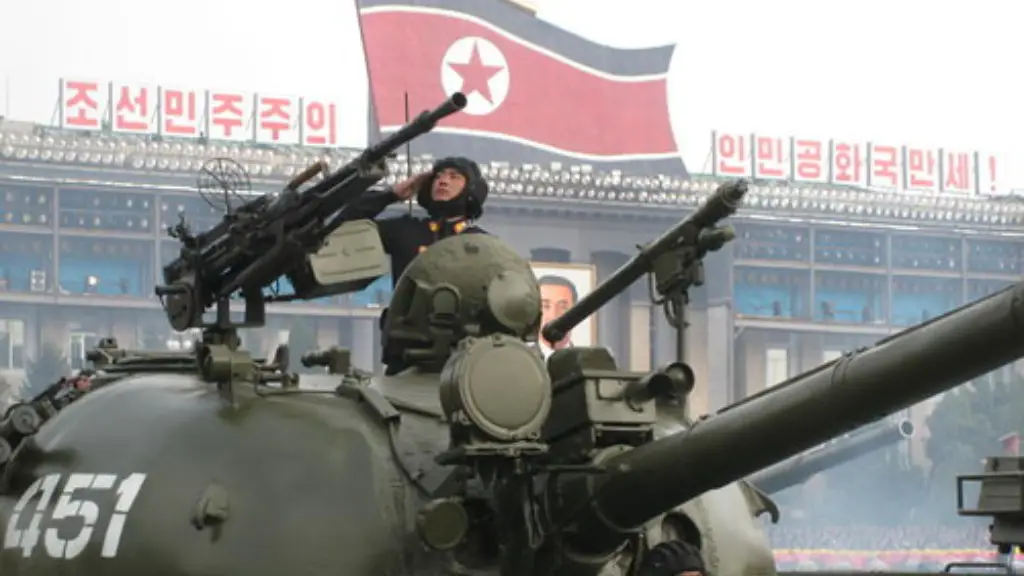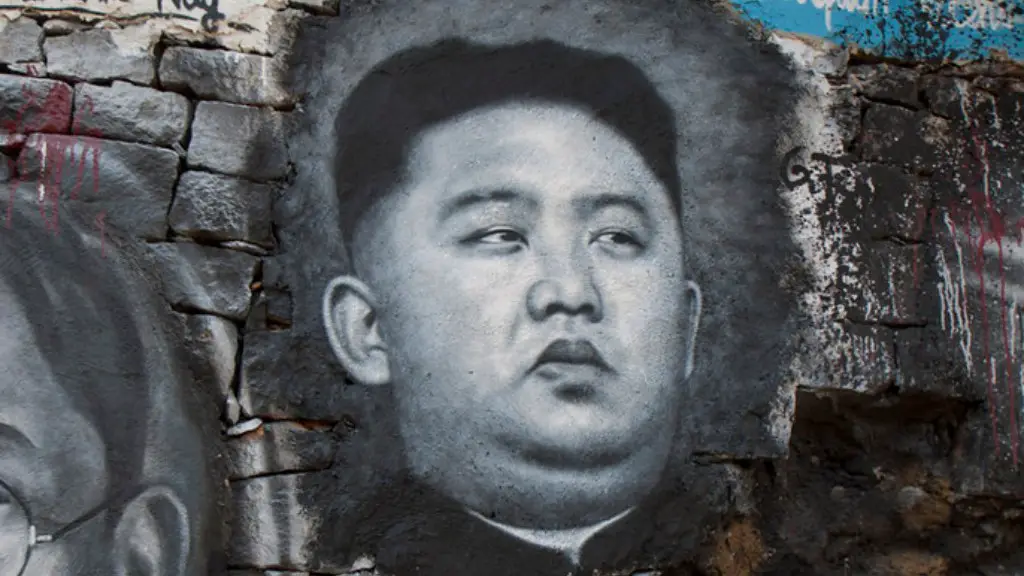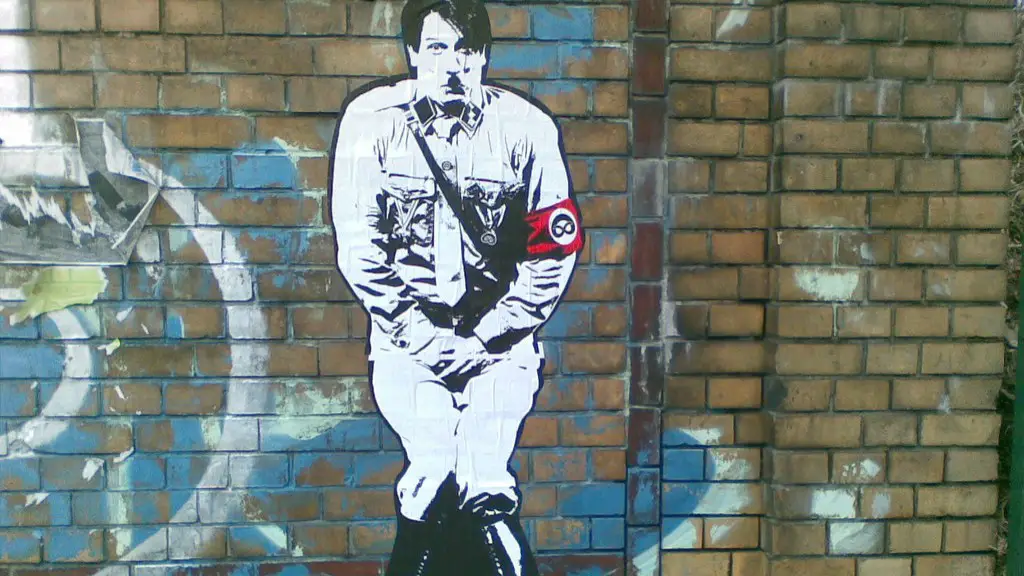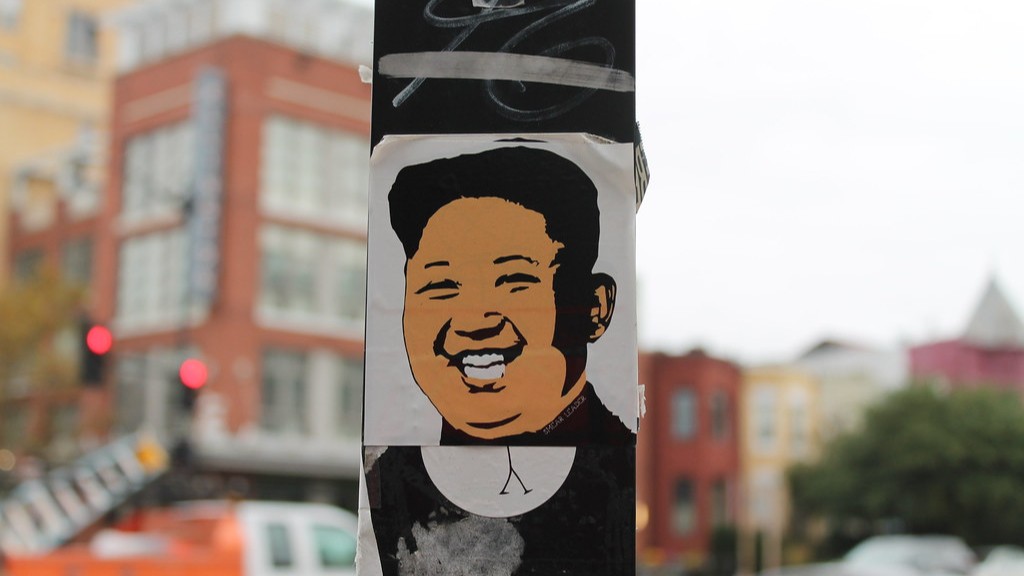Background of Muammar Gaddafi
Muammar Gaddafi was born in 1937 in what is now Libya, where he became a military officer and eventually led a coup in 1969 that led to him becoming the country’s dictator. He was in power until 2011, when a civil war led to his ousting by rebel forces backed by NATO forces. After his ousting, Gaddafi went into hiding but was eventually killed in the same year.
Gaddafi’s rule was marked by a mix of authoritarianism and social reform. On the one hand, he was condemned for the use of violence and arbitrary detention against his opponents, and for the lack of civil rights in Libya. On the other, he pioneered progressive policies such as free healthcare and education, subsidized housing, women’s rights, and free access to electricity, water, and gas.
Positive Aspects of Gaddafi’s Rule
Gaddafi was lauded by some for his efforts to spread wealth among everyday Libyan citizens. Social reforms by Gaddafi’s government provided free healthcare and education, subsidized housing, and considerable social benefits to the Libyan people. Under his rule, the economy prospered, the number of educated citizens grew rapidly, and the country enjoyed a high rate of economic growth in the 1990s.
Gaddafi also held Libya together by ruling with an iron fist. During his rule, tribal conflict was kept to a minimum, as was political dissidence. Libya also increased its presence on the international stage during Gaddafi’s years in power, becoming a more active participant in international affairs and providing support for various Arab and African countries.
Moreover, Gaddafi was a strong proponent of African unity and worked to promote it throughout his rule. His concept of the United States of Africa proposed the creation of a superstate of Africa, which would be jointly made up of the continent’s individual states. He even held a summit in 2009 to move forward with his plans.
Negative Aspects of Gaddafi’s Rule
Despite the positive aspects of Gaddafi’s rule, it was marked by serious human rights abuses. In the eyes of the international community, Gaddafi was a dictator who used violence and intimidation to quash dissent. His intolerance for opposition led to the arbitrary detention and torture of political opponents, as well as the oppressive treatment of ethnic and religious minorities.
Libya also suffered from severe mismanagement and corruption under Gaddafi’s rule, resulting in a substandard infrastructure and a breakdown in public services. The economy suffered from a lack of investment and foreign companies were often shut out of Libyan markets due to the government’s corrupt practices. The country experienced a drop in both its oil production and foreign capital.
Additionally, Gaddafi was an active participant in the international terrorism network throughout his rule, providing both financial and logistical support to radical Islamic groups in multiple countries. He also funded militias and terrorist groups that were accused of perpetrating numerous atrocities in the region.
Impact of the Libyan Civil War on Gaddafi’s Legacy
In 2011, a popular uprising against Gaddafi’s rule sparked a civil war in Libya. The conflict soon escalated into all-out civil war, with Gaddafi’s forces fighting against rebel forces backed by NATO forces. Gaddafi was eventually overthrown and became a fugitive, eventually being killed in 2011.
Gaddafi’s death marked the end of his 42-year rule and brought an end to his oppressive regime. However, the legacy of his rule is complicated and contested. While he was seen by some as a tyrant and an agent of terror, he was also seen by some as a hero and a visionary who implemented progressive social reforms and sought to unify Africa under a single pan-African state.
International Criticisms of Gaddafi’s Rule
Gaddafi’s rule was met with considerable criticism from the international community. The US and the UK in particular harshly condemned Gaddafi’s regime and imposed numerous sanctions on Libya in an effort to pressure the government to comply with international human rights conventions.
The UN was also critical of Gaddafi’s human rights record and the lack of civil liberties in Libya, as well as its support for terrorism. In response to these criticisms, Gaddafi tried to reform his image in the international community and welcomed foreign investment into the country in an effort to promote economic growth.
Impact of Gaddafi’s Rule on Modern Libya
Gaddafi’s legacy still informs the current state of modern Libya. Since his ousting, the country has gone through considerable upheaval, with two rival governments vying for power and various militant groups vying for control of the country. The conflict has led to the displacement of large numbers of people and the deaths of thousands more.
Nevertheless, Gaddafi’s legacy still lives on in Libya in a variety of ways. The social reforms he enacted such as free healthcare and education, as well as women’s rights, are still in place, as is the concept of pan-African unity which he was so passionate about. His efforts to promote economic development in Libya are also being continued by the incumbent government, with foreign investment and trade playing an important role in driving the country’s growth.
Popular Opinion of Gaddafi
Gaddafi’s rule remains a contested and divisive subject within Libyan society. While some view him as a hero and a visionary, others view him as a tyrant and a violator of human rights. Even today, there is still no definitive answer as to whether or not Gaddafi was a “good” ruler.
On the one hand, many Libyans look upon Gaddafi’s rule as a period of prosperity and peace. Under his rule, social benefits were extended to all citizens, the economy prospered, and the country became more active on the international stage. On the other hand, Gaddafi was accused of perpetrating numerous human rights abuses, mismanaging the economy, and perpetrating violence against his political opponents.
Ultimately, the legacy of Gaddafi’s rule is still being contested and debated by Libyans to this day, with no definitive answer as to whether or not he was a good ruler. Historians and economists continue to disagree on the legacy of Gaddafi’s rule, as do average Libyans.
Analysis of Gaddafi’s Rule
When evaluating Gaddafi’s rule, it is important to look at both the positive and negative aspects of his rule. It is undeniable that he implemented progressive policies such as free healthcare and education, and sought to unify the African continent. However, it is also undeniable that his rule was marked by serious human rights abuses, mismanagement of the economy, and the funding of terrorist groups.
Thus, it can be argued that Gaddafi’s rule was a mixed bag. On the one hand, he implemented progressive policies and sought to promote economic growth in Libya. On the other hand, his authoritarianism and human rights record tarnished his legacy and will likely continue to do so for years to come.
Implications of Gaddafi’s Rule
Gaddafi’s legacy still has implications for Libyans and the rest of the world. In Libya, the government is struggling to pick up the pieces of the civil war that was sparked by Gaddafi’s ousting and bring about stability and peace. Internationally, many countries are still dealing with the fallout from Gaddafi’s rule, from his support for terrorism to his economic and diplomatic irregularities.
Gaddafi’s legacy lives on in Libya and around the world, for better or for worse. His rule was marked by both progress and atrocities, and this dichotomy will continue to define his legacy for years to come.
Potential Impact of Gaddafi’s Rule
While it is impossible to predict Gaddafi’s legacy in the long term, it is clear that his rule has had a considerable impact on Libya and the world. His rule was both progressive and oppressive, and his legacy will continue to be contested and debated in both Libya and the international community.
Nevertheless, it is undeniable that Gaddafi had a hand in shaping the modern Libya, both positively and negatively. In the years to come, it is likely that Gaddafi’s legacy will continue to be explored and discussed, and his rule will ultimately be seen in a variety of ways.



